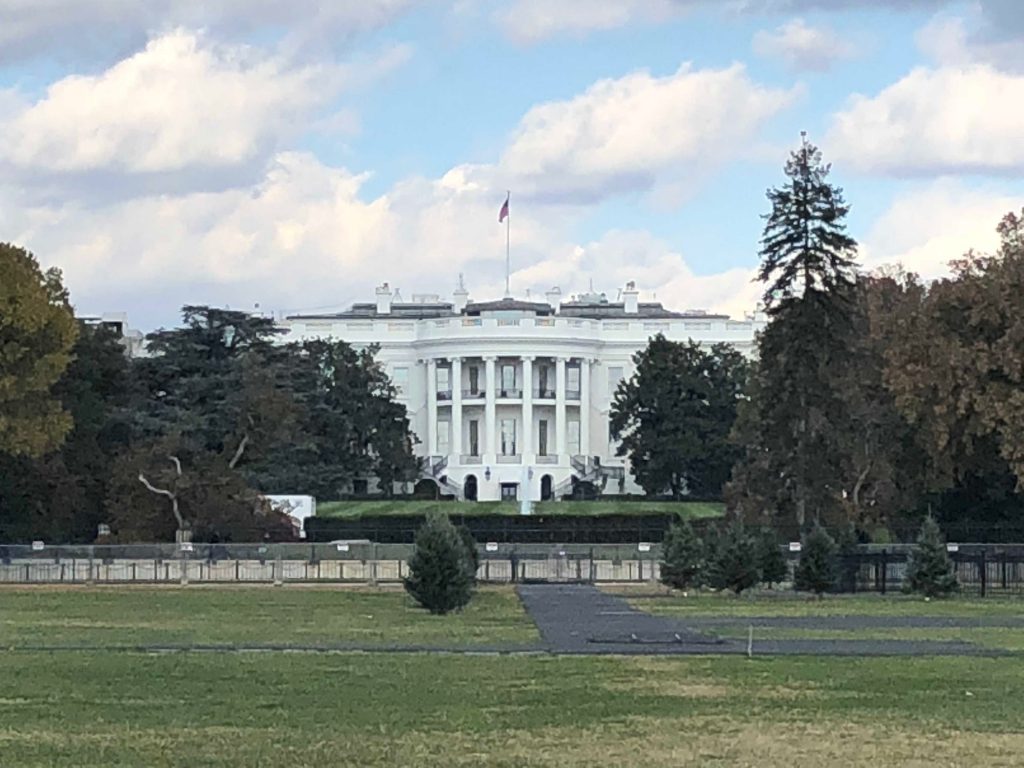President Trump Redirects COVID Data From CDC, Causing Outcry
President Trump may be shifting the data to have more control over the numbers, but according to a national political correspondent, “The good data we were getting wasn’t coming from the federal government anyway.”

From the start of the pandemic, the Centers for Disease Control and Prevention has collected data on COVID-19 hospitalizations and equipment that is necessary for healthcare workers with the virus, but now, that’s changing.
Beginning on Wednesday, the Trump administration has ordered hospitals to bypass the CDC and to start sending critical information about COVID-19 hospitalizations to a different federal database, effectively stripping the CDC of their data collection responsibilities.
What does that mean for the country’s coronavirus data stream?
Listen: Philip Bump discusses larger problems in the U.S.’s ability to collect and process coronavirus data.
Guest
Philip Bump is a national political correspondent with the Washington Post.
He explains that although the CDC is no longer responsible for collecting and centralizing data from hospitals, the COVID-19 related data stream is not necessarily going to be compromised. “What we’ve seen over the course of the pandemic is that it’s really the state-level data that’s provided a lot of insight into what’s going on. The state-level data is still being collected and while it’s certainly a point of criticism that the federal government has never had a strong, robust, real-time, unified source of data on this, it’s not necessarily the case that our data stream is immediately going to change.”
Bump says that there are a number of reasons that this transfer of responsibilities may have happened, but that the primary focus should be less on the transition of data and more on the federal government’s shortcomings when it comes to centralizing data during the COVID-19 pandemic: “The federal government has never been good about tracking what’s happening on the ground.”
This inability of the federal government to track and compile data during the coronavirus pandemic has set the country apart from the rest of the world in a negative way. “We pride ourselves on being a very savvy country yet we lag behind our neighbors to our South, the data and collection of data have been much more robust in other countries,” says Bump, pointing to Mexico and other countries that have been better equipped to handle the pandemic than the United States.
On the disparity of cases between states within the U.S., Bump’s outlook is not good “We are in a grim, grim scenario. Granted people aren’t dying as rapidly as they were in April… but the numbers of deaths and cases are spiking,” explains Bump, who recalls the severity of cases in New York City months ago and sees similarities currently playing out in other states. “I live in New York, cases are down here now, but I am very well aware that that’s at risk because of what’s happening elsewhere in the country… Without a national approach, it’s hard to see how we’re able to do anything.”
Trusted, accurate, up-to-date
WDET is here to keep you informed on essential information, news and resources related to COVID-19.
This is a stressful, insecure time for many. So it’s more important than ever for you, our listeners and readers, who are able to donate to keep supporting WDET’s mission. Please make a gift today.
